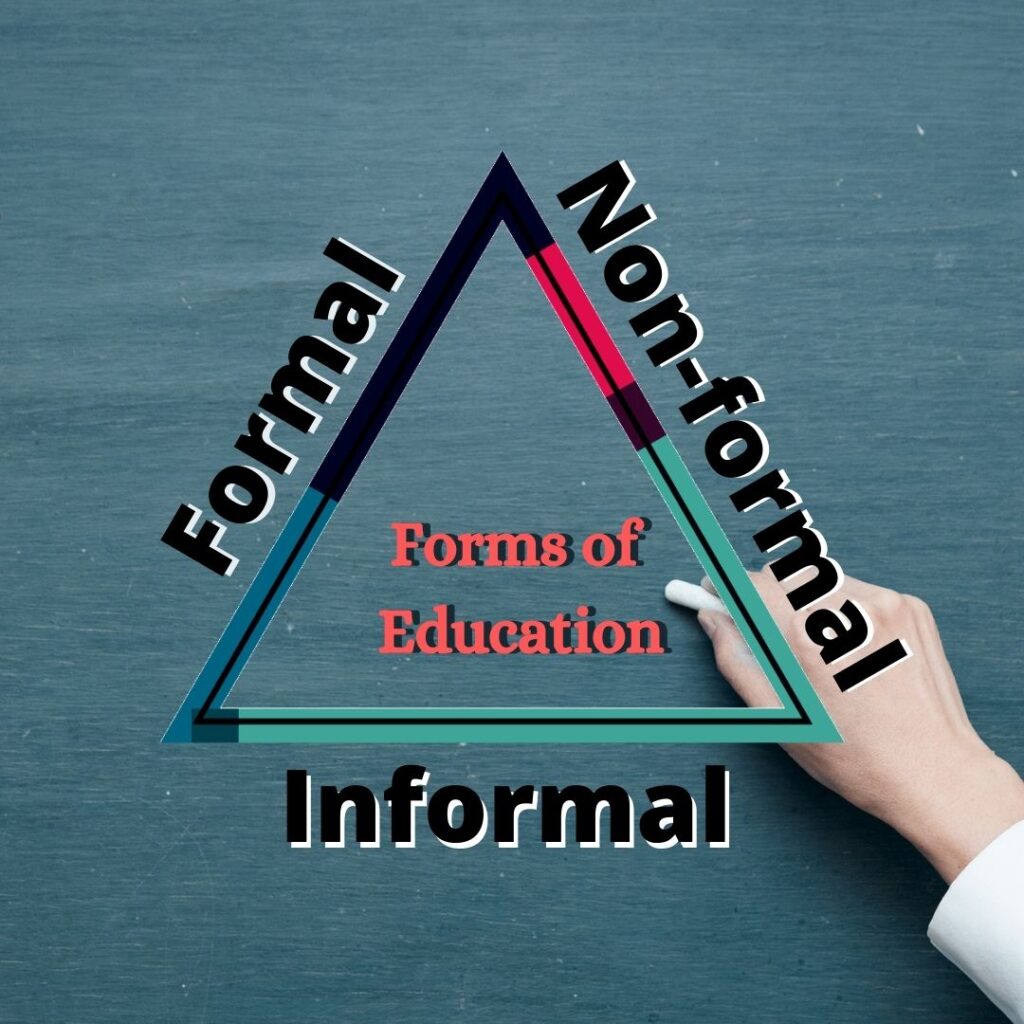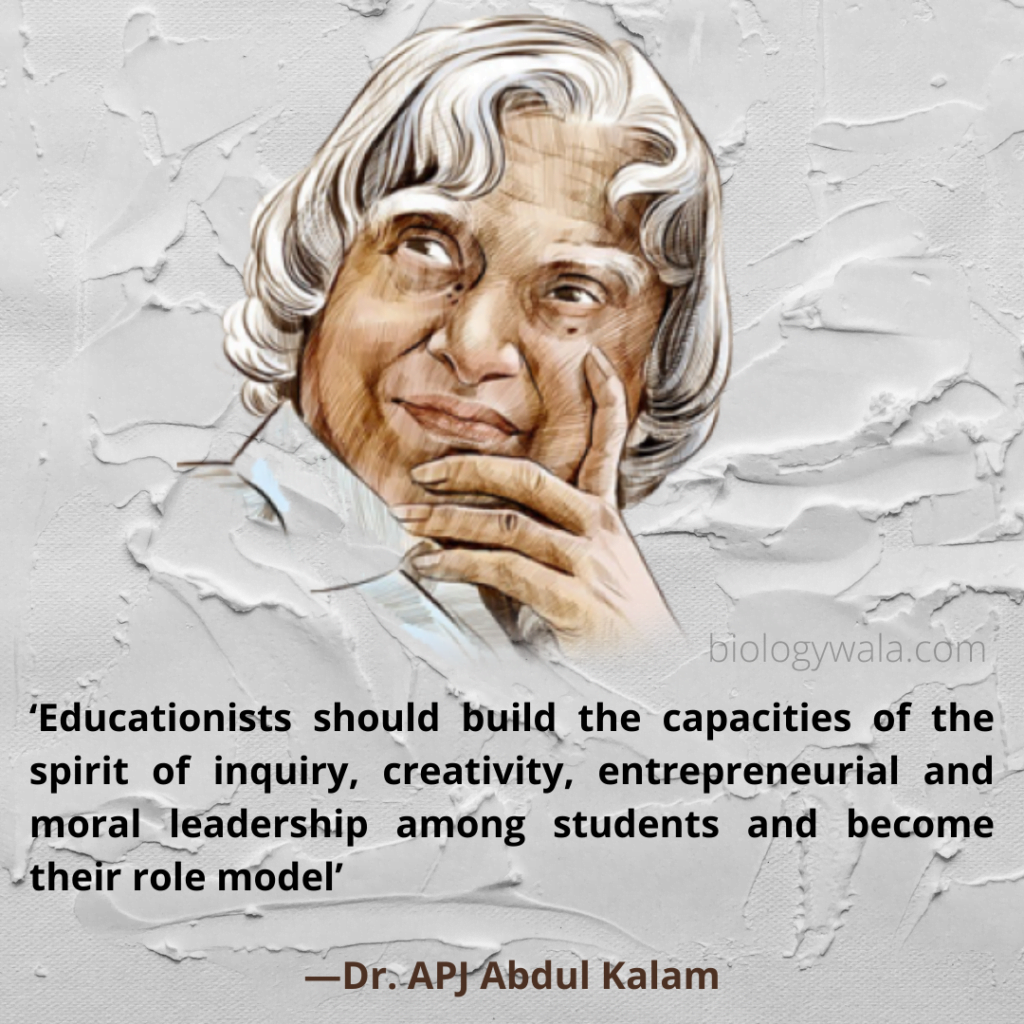Teaching Aptitude for NET AND SET Exams: Education

Teaching Aptitude :
In this article, we will be discussing Education: its form, aims and Objectives of Education, and teaching Concepts. This is the 1st blog on Paper 1 by biologywala.com I hope it will clear your doubts about Teaching Aptitude for NET AND SET Exams.
Education:
The word ‘education’ has a wide meaning, and it is difficult to define it in precise terms. As per NTA Exams or SET exam patterns, there are no direct questions on the definition, still, some of the statements are here for better retention of the concept of education.
The terms education, teaching, and learning are closely related. The objective of education is learning, not teaching. Teaching is the way to make students learn, but then, it is not the only way. Teaching is called a ‘facilitator of learning. Education is the key to everything good in our world today. Education is not
only about the past and present, but it is also the key to the future. Education not only teaches our children facts but also teaches them how to think and learn on their own.
Swami Vivekananda defines education as the manifestation of perfection already in man.
Aristotle defined education as a ‘creation of a sound mind in a sound body.
According to Heinrich Pestalozzi, ‘Education is the natural harmonious and progressive development of man’s innate powers. This definition means each human being has immense natural, inborn talent or talents in him. Education provides development conducive atmosphere for him or her.
John Dewey defines education as the power by which man can control his environment and fulfil his possibilities.
According to Frobel, ‘Education is a process by which the child develops its inner potential in a manner to participate meaningfully in the external environment’. ‘The purpose of education is to expand
the life of the individual to participate in its all-pervading spirit which manifests and realizes itself in and through the whole universe’.
Forms of Education in Teaching Aptitude:
Though there are no clear-cut forms of education in Teaching Aptitude, we can discuss the three types that are as follows.
- Formal
- Informal
- Non-formal

1. Formal education:
It is pre-planned direct, organized and given in specific educational institutions, such as schools and colleges. It is limited to a specific period and it has a well-defined curriculum. It is given by qualified and trained teachers. Formal Education observes strict discipline. It occurs at different levels, such as in the primary, middle, secondary, higher secondary, graduate, postgraduate, doctorate, and post-doctorate. It can be in humanities, science, technical and professional areas.
2. Informal education:
The quote by George Santayana, ‘A child educated only at school is an uneducated child’, amply reflects upon the importance of informal education. Informal education is not pre-planned or deliberate, it is indirect and spontaneous. It takes place from day-to-day activities, experiences, and living in the family or community. There are no formal goals. Pestalozzi believed parents are the first informal teachers of every man or woman, family environment is the first learning environment.
3. Non-formal education:
Education is a lifelong process, it is integrated with life and work. It falls within the formal and informal types of education. It is a flexible system. It is intentional, incidental and given outside the formal system of system. It is consciously and deliberately planned, organized and systematically implemented. It is an open system of education without rigid rules, regulations and fixed ages, stages, or time schedules.
Social or adult education and distance education are examples of non-formal education. All these three types of education, such as formal, informal and non-formal, have their due place in the modern system of education. Each has its own merits and demerits. There is a need to integrate the three forms and make education holistic and comprehensive.
Thus we can see that the above three components are mixed up in actual life situations. Active agencies like families, schools and colleges work through human interaction. Cinemas, radios, newspapers and magazines are counted as passive agencies where education is mostly seen as one-way interaction but some feedback mechanisms and panel discussions may also exist.
Aims and Objectives of Education:
In today’s situation, no nation can think of social or economic development without an abundant supply of highly educated and skilled people. The issue of function and objectives of education is of utmost importance because all other aspects of education, like the content (subject matter), method (of teaching and instruction), discipline and evaluation are integrated with it.
Most of the functions of education become clear to us through the various definitions given above.
Havighurst and Neugarten have given two important functions of the education system:
- A mirror that reflects society as it is or is a stabilizer of society.
- An agent of social change or a force directed towards implementing the ideas of society.
George Payne, a sociologist, has given three main functions:
- Assimilation of traditions
- Development of new social patterns
- The creative and constructive role
Teaching Concept:

‘Educationists should build the capacities of the spirit of inquiry, creativity, entrepreneurial and moral leadership among students and become their role model’
—Dr. APJ Abdul Kalam
The main objective of effective teaching is learning.
As per the NTA-UGC-NET and SET Exam syllabus, for Teaching Aptitude our current focus is to imbibe the concept of teaching. The experiences we resort to for learning can take different forms that have been explained under the concept of learning.
These words reflect the whole idea of what it means to be a teacher. The progress and prosperity of a nation depend upon the development of its human resources. For this purpose, we need highly competent teachers.
Important Concepts in Education and its Proponents:
| Concepts in Education | Proponents |
| Basic education (Wardha Education System) | Mahatma Gandhi |
| Learning to take place in nature and from nature | Rabindranath Tagore |
| Integral education | Sri Aurobindo |
| Focus on spiritual aspects of Indian philosophy | Dr Sarvepalli Radhakrishnan |
| Education to transform the human mind | J. Krishnamurti |
| Self-education through the development of individuality | Maria Montessori |
| Kindergarten focuses on self-activity, creativeness, and social cooperation | Froebel |
| No formal learning nature is the only teacher | Rousseau |
| Experiential learning | John Dewey |
Teaching in Teaching Aptitude can be defined in the following ways:
- Teaching is the purposeful direction and management of the learning process.
- Teaching is a process of providing opportunities for students to produce relatively permanent change
through engagement in experiences provided by the teachers. - Teaching is a skilful application of knowledge,
experience and scientific principles to set up an environment to facilitate learning. - Teaching is a planned activity and effective teaching depends on the following factors.
(a) How clearly the students understand what they are expected to learn.
(b) How accurately their learning can be measured. - Teaching is a process in which the learner, teacher and other variables are organized in a systematic way to attain some predetermined goals.
- Teaching is an activity that influences a child to learn and acquire desired knowledge and skills and also their desired ways of living in the society
Basic Teaching Models:
There is no basic model of teaching that portends well for all situations. We are going to discuss two contrasting models here; these models separately or in combination could be used for different courses.
1. Pedagogy Model:
Pedagogy is a conventional approach. In this method, the instructor, more or less, controls the material to be learned and the pace of learning while presenting the course content to the students. The purpose of this method of learning is to acquire and memorize new knowledge or learn new skills.
Instructor-centred teaching can also be described as a ‘pedagogical approach’. Pedagogy is the art and science of teaching. It determines ‘how the teaching occurs, the approach to teaching and learning, the way the content is delivered, and what the students learn as a result of the process’.
In the pedagogical approach, the learner is dependent upon the instructor for all learning, and the teacher assumes full responsibility for what is taught and how it is learned. The teacher or instructor evaluates the learning processes of the students.
Following Table explains Major Shifts in Teaching:
| From Pedagogy | To Andragogy |
| Teacher-centred, fixed designs | Learner-centred, flexible process |
| Teacher’s direction and decisions | Learner’s autonomy |
| Teacher’s guidance and monitoring of learning | Teacher’s facilitation, support and encouragement for learning |
| Passive reception in learning | Active participation in learning |
| Learning within the four walls of the classrooms | Learning in the wider social context |
| Knowledge as ‘given’ and ‘fixed’ | Knowledge as it evolves and is created |
| Disciplinary focus | Multidisciplinary, educational focus |
| Linear exposure | Multiple and divergent exposures |
| Assessment short, Few | Assessment multifarious, continuous |
2. Andragogical Model:
In this model, the learner is mostly self-directed and is responsible for his or her learning. The students learn best not only by receiving knowledge but also by interpreting it, i.e., learning through discovery and, at
At the same time, setting the pace of their learning.
In this method, the instructors facilitate the learning of participants and help them by offering opportunities to learn themselves and acquire new knowledge and develop new skills. This type of teaching is also referred to as andragogical approach. Self-evaluation is also a characteristic of this approach. Andragogical approach is also identified with ‘adult learning.’
I hope the blog Teaching Aptitude for NET AND SET Exams: Education helped you If it did then please comment down below and give your suggestions too so that we will come to know that we should continue to do this and it will also motivate us to work further with a high level of enthusiasm.
You will also like :
[Download] Biochemisty: An introduction by LUBERT STRYER
Download Free Reference Books for Genetics
[Download] Top 5 Books for Molecular Biology: Basic to Advance
If you want important notes and updates about exams on your mobile then you can join SACHIN’SBIOLOGY on Instagram or Facebook and can directly talk to the founder of Sachin’s Biology and Author of biologywala.com Mr. Sachin Chavan M.Sc. NET JRF (AIR 21) GATE SET!
![[Download] Top 5 Books for Molecular Biology: Basic to Advance 4 Top 5 Books for Molecular Biology , molecular biology pdf books](https://biologywala.com/wp-content/uploads/2021/04/20210429_110135_0000-520x245.jpg)

![[Download] Cytodifferentiation and Somatic Embryogenesis: Complete PDF notes 6 Cytodifferentiation and Somatic Embryogenesis: Definition, Stages, Example](https://biologywala.com/wp-content/uploads/2025/01/Somatic-Embryogenesis-1-1-520x245.png)
1 Response
[…] Education: Aim, Objectives, forms and teaching models […]